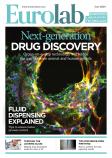Camila Cruz Durlacher discusses how scientists can turn the tide on misinformation
If ever there was a time when one would expect to have felt most acutely the daily impact of science, it was surely the last 24+ months of the pandemic.
The stream of research into vaccines, masks and ventilators was a mainstay of news agendas and conversations. And that’s without mentioning the sudden broad awareness of R values and growth rates. Yet, at 3M our latest research with Ipsos suggests that only 42% of Europeans believe science is important to their everyday lives, way below the global average of 56%. What’s behind this low percentage? The culprit could well be misinformation.
There has been what’s felt like a major acceleration in the spread of misinformation in Europe. Indeed, the EU’s Digital Services Act represents a clear attempt to tackle issues of mis- and dis-information. As unverified facts circulate it becomes harder and harder for people to know what to trust and undermines the credibility of good scientific facts that are also being shared.
Examining the research and opinions of the public as we have done in our 2022 State of the Science Index reveals more about how ‘fake news’ is not only a sub plot, but a major player in society’s relationship with science. As a scientific community we have the opportunity – indeed the responsibility – to become more vocal guardians of good science.
Tarnished by misinformation
The spotlight on our public health and the quality of care looks unlikely to disappear any time soon. Indeed, 80% of Europeans now recognise the desperate need for greater access to healthcare providers and cite this as the top priority issue for society to solve. Given its prominence, the issue of health and medicine is sadly also fertile ground for misinformation to spread. The majority of Europeans recognise this threat, with 57% believing that future public health crises could result from distrust in scientific advice.
As well as more public health crises, the majority of European’s are worried widespread misinformation will lead to greater societal divisions (57%) and an increase in the severity of the effects of climate change (52%). It’s a bleak picture.
Changing the channel
A key indicator of reliability and trust can be the platform by which information is delivered.
The scrutiny of social media as a means of communication is not new. Even so, the fact that just 31% of Europeans trust scientific facts delivered via social media, compared to 70% for traditional media, is evidence of just how central social media is perceived to be to the spread of misinformation. Social media allows for insights, true or false, to travel at lightning speed and potentially for false information to take root with a wide audience. People in Europe are distrustful of information on social platforms, primarily because they simply don’t know what is and isn’t credible.
And it’s hard – even as experts in our fields I’m sure all of us have had moments where we’ve read something on social media and wondered, is this for real?
A colleague recently shared with me a method designed to help us all to weigh up misinformation. It was developed by a digital literacy expert and gives a short list of actions to help one to determine if a news source is credible. The method, called SIFT, prompts you to stop, investigate, find and trace the source. I for one, have reminded myself of this when scrolling through my social feeds and it’s proved a useful tool.
With the insights, methods and expertise we have as a community, we have an opportunity to help safeguard science. Encouragingly, another of the State of the Science Index findings was that almost 80% of the European public want to hear more from the scientists and researchers themselves. Maintaining and growing trust in science may be a fraught journey but the time has come for us to step forward and protect the truth. We are all guardians of good science, and we can work together to stop misinformation in its tracks.
Camila Cruz Durlacher is VP Corporate R&D Operations, EMEA, 3M









